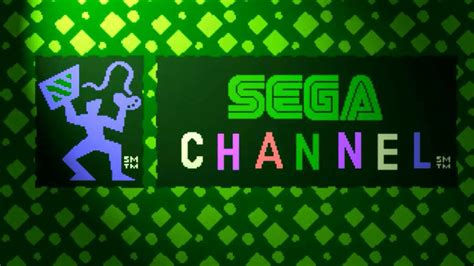Sega the Subscription Service Pioneers
- swooperd
- Apr 8, 2022
- 4 min read

With the unveiling of the new Playstation Plus service and its tiered access to a library of games, debate inevitably raged amongst the gaming community. Was it a good value? Why were Sony charging for demos? What about Day 1 releases?
And also inevitably comparisons began with Game Pass and how one offers more games, one has comparably less but includes Day 1 game releases including (but not limited to) platform exclusives, one has a higher tier that involves demos, another lets you download previous generation games to play natively.

Blah. Blah. Blah.
Over the last few years, I have found it amusing that Game Pass is deified so much. I do agree that it is the best deal in gaming. I am, in fact, a subscriber and have been for years now, with my sub currently running till mid-2023.
But the thing with Game Pass is that it is billed as the “Netflix of Gaming” and that Microsoft are revolutionising how games are consumed and played. And while you could make arguments for those points they don’t hold under scrutiny.
You see, the way we consume games was revolutionised before Game Pass, before Netflix and even before digital distribution became mainstream.
And of course, it was pioneered by Sega.

In December 1994 Sega launched The Sega Channel in the United States. For a monthly subscription fee, users would receive access to library of titles which would rotate on a regular basis, access to games on their release date in the region as well as access to betas and demo’s in the previews section.

Sound familiar? It doesn’t stop there. Sega offered their own perks such as access to codes and hints for games, and held contests via the service for subscribers to win games and other game related prizes.
It’s astonishing to read that back now, some 22 years before Game Pass was launched, 12 years before Netflix switched from a mail order rental service to a streaming site, and nearly 9 years before Steam was introduced by Valve.
There are differences of course between Sega’s service and that of PlayStation and Xbox. The revolving library of games topped out at 50 at any one time, likely due to restrictions in the technology the service was based on.

“Day One” releases are also different. While they don’t exist on any version of PlayStation Plus or Now, on Xbox the majority of first party offerings will receive a physical release. On The Sega Channel though, games were effectively “Day One” not only because they released on that day in the US, but because they didn’t have a physical release in that region, so they essentially became Day One by default.
But still, it presented a value proposition at least equal to Xbox’s today. Getting to play games like Alien Soldier, Mega-Man The Wily Wars and Pulseman on their debut for the cost of a monthly fee is astounding. Look at the cost of those titles in regions where they were released and it’s obvious there was a great deal to be had there.

By extension, The Sega Channel offered access to titles that were exclusive to the service, for better or for worse. Golden Axe 3 saw a release on the service, but nowhere else in the West. You could make the argument that they wouldn’t have seen a release at all had it not been for The Sega Channel, since it cut out the costly manufacturing of cartridges, manuals and bespoke cases making their releases on the service more viable.

Of course the biggest difference was that The Sega Channel was not an Online service, at least not in the traditional sense. It was run through Cable TV technology and its availability depended on the local Cable providers specific to the players area. Games too were limited to the Sega Channel Adapter, a device that plugged into the consoles cartridge slot to access the service, that had only 4MB of storage and wiped the downloaded games when it was powered off.
But those differences aside, it is remarkable how far ahead of the curve Sega were, as early as 1994 having a Game Pass-like service. If only they had online…
But wait!
Let’s go even further back to 1990 in Japan.

That year, in that region, Sega released the Sega Meganet, an actual Internet service which, once again, provided a library of downloadable games and, most amazingly of all, online multiplayer. Unfortunately the service only lasted a year and was hindered even more by the technology, but the fact that it offered such features decades before they went mainstream on consoles is breath-taking.
The Meganet 2 even received a release in Brazil in 1995 where the advances in technology allowed online play to be enhanced with chat options.

Once again, Sega were so far ahead of the game it was incredible. It seems like they were so intent on looking ahead that they couldn’t see what was happening in the there and then. With some better management, it would have been wonderful to see the service expand to the Saturn (which Tom Kalinske has confirmed that they had pushed for a built in modem for) and Dreamcast. While they had their own online services, a Sega Channel style rental service was not one of them.
Yes, the services were short-lived, but it’s still fascinating to look back knowing what we do now. Xbox Game Pass and PlayStation Plus present great value in their own right, but let’s not forget, they weren’t the first.




Any idea how long the games took to download on these systems?
It's mad to look back and see how far ahead of the curve Sega we're on a lot of things but often it was a case of right idea, wrong time.